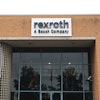Editor's note: This article originally appeared in the July/August 2015 print issue of Food Manufacturing
In this era of Corporate Social Responsibility, as businesses increasingly seek a triple-bottom-line model, there is a financing tool designed to support their investments in not just growing their businesses, but in revitalizing the communities in which they work and live.
For those food manufacturers that can provide a measurable, tangible benefit to economically distressed communities (e.g., job creation and environmental sustainability), there are a variety of local, state and federal programs that can help. The federal New Markets Tax Credit program is one that is attracting capital to many of them, especially in rural areas, so they may acquire property, build plants and retrofit out-of-date facilities with new technologies.
ALSO SEE: Effectively Improve Operational Efficiency for Food and Beverage Manufacturers
For example, Ehrmann Commonwealth Dairy in Brattleboro, Vt. is the cornerstone to a fast-growth, job-creating and sustainable Greek yogurt manufacturing enterprise that would not have been able to launch but for the New Markets Tax Credit program.
Greek-style yogurt now accounts for more than $2 billion of the $6 billion yogurt market. In 2010, New England-based entrepreneurs Thomas Moffit and Benjamin Johnson saw an opportunity to capture a share of this growing market and founded Commonwealth Dairy.
While the pair explored options in New York, Connecticut and Massachusetts to set up a manufacturing plant, it ultimately selected the southern Vermont community of Brattleboro because of the region’s strong background in the dairy industry and its proximity to grocery distributors. The project had the potential to be a boon to the region’s dairy industry, which had been struggling economically due to volatility in milk pricing for small family farmers. Indeed, in the two decades between 1990 and 2009, more than 2,100 dairy farms were shuttered.
This clear potential for the project to provide important benefits to an economically distressed community allowed Commonwealth Dairy to receive state and federal tax incentives, including funding via the federal New Markets Tax Credit program. With the lower cost of financing from the program, the Dairy was able to build an SQF-certified plant with state-of-the-art equipment that adheres to the highest quality standards.
The Brattleboro plant was designed for an annual yogurt production capacity of 32,000 tons and quickly reached this production target, increasing demand for high-quality local milk by 100 million pounds per year. These results are well beyond the company’s and the community’s original expectations.
Though they had technical support from Ehrmann, at the time of financing, Commonwealth Diary was a start-up venture with no financial, management, or sales history in the highly competitive yogurt business where there were already several large and established players currently operating in the Northeastern U.S. This, combined with the potentially volatility of pricing for the milk inputs, made securing traditional financing difficult.
The New Markets Tax Credit program was established by Congress in 2000 with the goal of spurring new or increased private investments into businesses located in low-income communities, by offering private investors a credit off their federal tax liability worth 39 percent of an investment made in a low-income community. As a result, the borrowing businesses typically receive financing that involves more favorable terms and conditions than those the market typically offers.
The Dairy’s success continues to ripple not only through New England, but across the country. The enterprise has since expanded by building a new operation in Arizona. Last year they started up operations at a 100,000 square foot Class II dairy processing facility, Ehrmann Arizona Dairy in Casa Grande. That facility will be manufacturing enough Greek yogurt to employ more than 200 people in 2015. All told between the two locations, the Greek yogurt makers will employ over 350 and sustain the operations of 130 local dairy farms.
Yogurt is not the only dairy category to utilize the New Markets Tax Credit program to build capacity and create jobs.
Emmi of Switzerland, its home country’s largest milk processor, already counts the U.S. as the largest foreign market for its cheese and fondue products. However, U.S. sales were largely driven by exports of their Swiss-produced cheeses. Through their Emmi Roth USA subsidiary, the company made a $44 million investment in a new 77,000-square-foot manufacturing facility in Platteville, Wis. – the company’s largest single investment to date.
During its first phase, the company is expected to produce about 6 million pounds of cheese per year. When the plant is expanded, the production is expected to increase to about 20 million pounds annually. This should result in 30 jobs in the first year of production, with a possible expansion to as many as 60 full-time positions. The addition of federal New Markets Tax Credits to the financing package allowed Emmi Roth USA to double the project scale from original plans — meaning 50 percent greater production capability and a third more jobs than would have otherwise been available.
As with Ehrmann Commonwealth Dairy, the Emmi Roth facility not only benefits those directly employed at the plant, but also improves the long-term economic outlook for local dairy farmers, who will supply 80 percent of the milk needed for processing. The demand from the Emmi Roth facility is also expected to increase the base price for that local milk by 2.7 percent, which is a significant change in pricing paid to farmers in the commodity-based milk market.
In addition to these job-creating benefits, the Wisconsin facility strives to be LEED or Energy Star Certified, and the project sponsors have set aside an additional $435,000 fund to support the financing of local healthy food production and distribution or retailing to low-income residents.
Emmi Roth also faced several roadblocks to securing traditional financing, including the extremely competitive and cost sensitive nature of the U.S. cheese market; the intense amount of time and capital required to produce cheese, with its attendant high levels of inventory; and the significant start-up costs associated with hiring and training personnel for the new plant operations. With the flexible financing provided through the New Markets Tax Credit Program, Emmi Roth was able to afford to build at the scale require to maximize its success potential.
Like Emmi Roth and Commonwealth Dairy, many food manufacturers are subject to highly competitive industries and volatile commodity markets, making traditional investors wary. However, in instances where the community benefits are clear, the New Markets Tax Credit Program can not only provide access to much needed start-up or expansion funds, but also structures it in a way to promote the manufacturers success.
About CEI Capital Management
CEI Capital Management creates and preserves jobs and improves quality of life in rural, low income communities by providing access to project capital through New Markets Tax Credits. Over 10 years CEI Capital Management has placed nearly $830 million in 83 different projects across the U.S. In addition to fiscal soundness, CEI Capital Management evaluates each project according to its benefit to the local community, economic gain and positive impact on the environment. It is a wholly owned subsidiary of CEI, the Maine-based nonprofit community development financial institution which was among the founders of this important federal economic development program.























